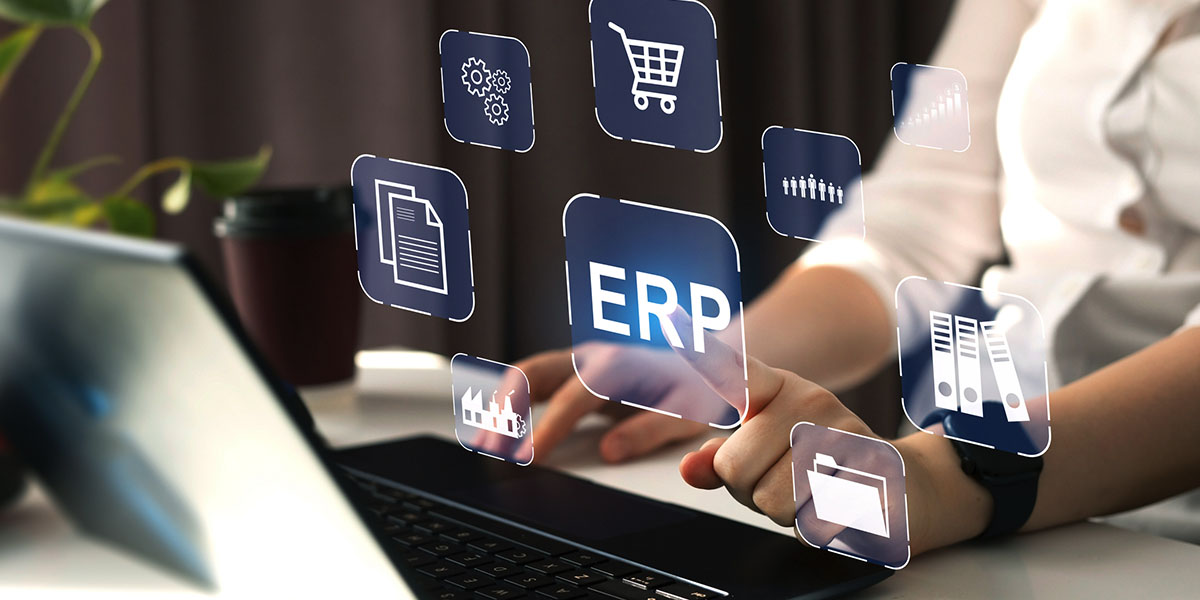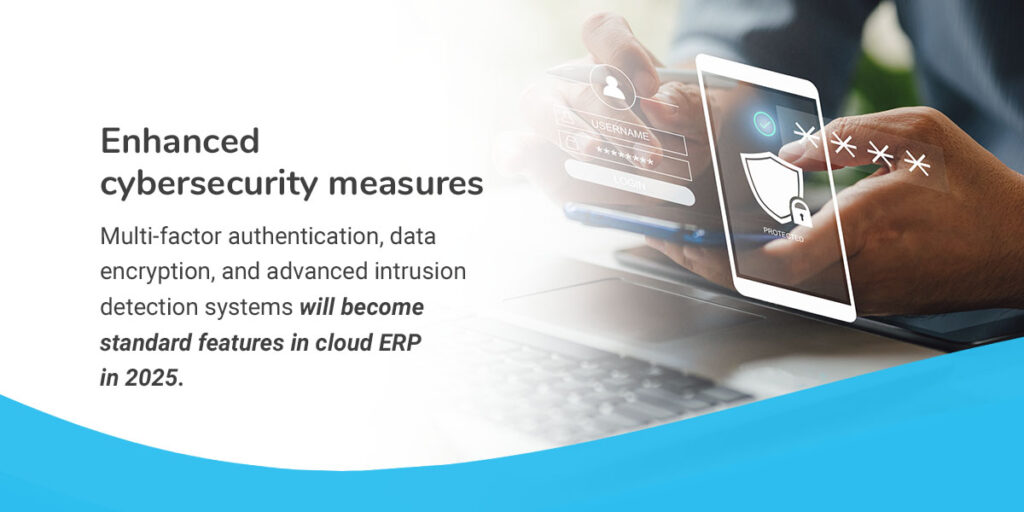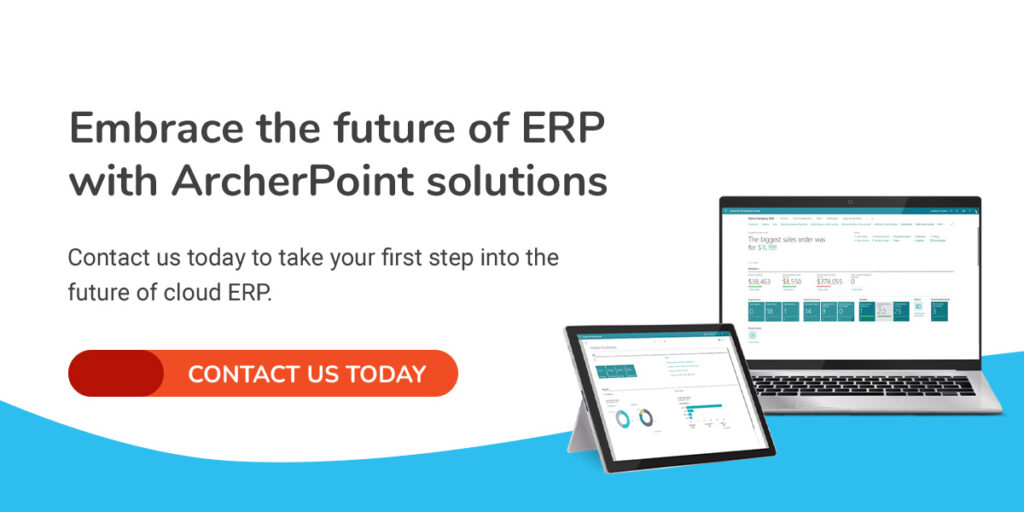The Future of Cloud ERP: What's Coming in 2025

Cloud-based enterprise resource planning (ERP) software has drastically changed how companies manage their core business processes, from accounting and finance to supply chain and customer relationship management. As technology improves, cloud ERP is set to go through a major transformation in the next few years.
To stay competitive and get the most out of these powerful systems, businesses need to stay informed about the latest ERP software trends. In this article, we’ll explore the key cloud ERP trends shaping the future of business management in 2025 and give you tips on how companies can prepare for these exciting changes.
AI-driven automation
Artificial intelligence (AI) and machine learning (ML) are set to transform old and new business ERP systems in 2025 by automating repetitive tasks and making it easier to make decisions. You can expect to see AI-powered features like:
- Smart data entry: The system learns from past entries to fill fields and spot errors automatically.
- Invoice processing: AI algorithms will accurately pull data from scanned documents and seamlessly add it to the ERP system.
- Report generation: AI will provide executives with real-time insights, finding trends and anomalies that might otherwise go unnoticed.
The benefits of AI-powered automation are huge. Companies will experience increased efficiency, reduced errors, and better decision-making as AI takes over mundane ERP tasks and provides data-driven suggestions. However, this shift will also impact job roles. Employees need to learn new skills and plan to adapt to working with AI-powered systems. Businesses must prioritize training and change management to ensure a smooth transition.
Real-time analytics & enhanced reporting
By 2025, real-time data analytics will become a standard in cloud ERP systems. Companies will no longer need to wait for monthly reports or dig through spreadsheets to check performance. ERP industry trends point toward interactive dashboards that provide instant visibility into key performance indicators (KPIs), allowing businesses to make proactive, data-driven decisions.
Advanced data visualization tools will make complex data easier for non-technical users to understand. Executives will have quick insights into critical metrics, while drill-down capabilities allow for deeper analysis when needed. This shift toward real-time analytics will improve forecasting accuracy, boost operational agility, and give businesses an edge in fast-changing markets.
Integration of IoT & edge computing
The Internet of Things (IoT) is set to change how cloud ERP systems collect and process data. In 2025, expect to see widespread integration of IoT devices into ERP workflows. For example:
- Smart sensors in manufacturing equipment will provide real-time data on machine performance, enabling predictive maintenance and optimized production schedules.
- RFID tags on inventory items will allow for detailed tracking and automated reordering, streamlining supply chain management.
Edge computing will play a key role in processing IoT data closer to the source, reducing lag and enabling faster response times. This decentralized approach will benefit industries with time-sensitive operations, such as manufacturing and logistics. Cloud ERP integration with IoT and edge computing will lead to better visibility, optimized resource use, and improved operational efficiency.
Low-code & no-code platforms
One of the most exciting cloud ERP trends for 2025 is the rise of low-code and no-code platforms. These user-friendly tools will let business users customize and extend their ERP systems without needing extensive coding knowledge. Drag-and-drop interfaces and pre-built templates will allow citizen developers to create custom workflows, reports, and integrations with minimal IT involvement.
Low-code and no-code platforms will make ERP innovation more accessible, enabling businesses to adapt quickly to changing needs. Companies will benefit from faster development cycles, lower IT costs, and increased business agility. As more employees become comfortable with these tools, expect to see a wave of creative solutions and process improvements driven by those closest to the day-to-day operations.
Enhanced cybersecurity measures

As cloud ERP systems become more interconnected and data-driven, cybersecurity will be a top priority in 2025. With cyber threats becoming increasingly sophisticated, businesses must strengthen their ERP systems with robust security measures. Multi-factor authentication, data encryption, and advanced intrusion detection systems will become standard features in cloud ERP in 2025.
ERP vendors will focus on providing more secure and compliant environments for their customers’ data in 2025. They will also prioritize employee training on cybersecurity best practices and utilizing tools to spot phishing attempts better. Customers will opt for vendors that offer the following enhanced cybersecurity measures:
- Regular security checks
- Proactive threat monitoring
- Open communication about their security practices
Mobile-first ERP
In 2025 and beyond, mobile-first ERP will be the norm, with employees expecting seamless access to critical data and workflows from their smartphones and tablets. Mobile ERP apps will empower remote workers, field technicians, and sales teams to stay connected and productive, regardless of location. User-friendly interfaces and offline capabilities will ensure a smooth user experience, even in areas with limited connectivity.
The benefits of mobile-first ERP are numerous. Employees can respond to customer inquiries, update project statuses, and submit expenses on the go, leading to improved productivity and faster response times. Real-time data access will enable better collaboration and informed decision-making across the organization. Companies that embrace mobile-first ERP will be well-positioned to thrive in an increasingly mobile and remote workforce.
Composable ERP
Composable ERP is set to become increasingly important in 2025 and beyond as businesses seek more flexibility and agility in their ERP systems. Composable ERP is the idea of breaking down monolithic ERP suites into smaller, independent modules that can be mixed and matched to meet specific business needs. This approach allows companies to select and combine individual ERP components, such as finance, supply chain, or human resources, from different vendors or solutions.
The growing adoption of composable ERP will enable businesses to create custom ERP environments tailored to their unique requirements. As business needs change over time, companies will be able to easily swap out or add new modules without disrupting their entire ERP ecosystem. This flexibility and agility will be crucial for businesses to adapt quickly to market changes, new regulations, or shifts in customer demands.
Preparing for the future of cloud ERP
To capitalize on ERP 2025 trends and stay ahead of the curve, your company should assess its current ERP system to identify areas for improvement. Evaluate how well your existing setup aligns with your long-term business goals. With a detailed evaluation, you can develop a clear cloud ERP strategy that outlines your objectives, timeline, and budget. Consider factors such as scalability, integration capabilities, and vendor support when selecting an ERP solution.
To capitalize on 2025 cloud ERP trends and advancements, carefully assess cloud ERP vendors to find the best fit for your organization. Look for vendors with a proven track record of innovation, a strong commitment to customer success, and a deep understanding of your industry. Consider the vendor’s roadmap and their ability to deliver on the latest ERP innovations, such as IoT or composable architectures. Your chosen vendor should also demonstrate a strong commitment to data protection.
By taking these proactive steps and partnering with the right cloud ERP vendor, you can position your company to thrive in the era of intelligent, agile, and future-ready ERP systems.
Embrace the future of ERP with ArcherPoint solutions
The future of cloud ERP is full of exciting possibilities, from AI-powered automation and real-time analytics to IoT integration and composable architectures. In 2025 and beyond, businesses that stay informed and adapt to these trends will be well-positioned to unlock new levels of efficiency, agility, and competitive advantage.
ArcherPoint is passionate about helping companies navigate the future of ERP. With our cutting-edge Microsoft Dynamics 365 Business Central solutions and expert guidance, we can help you drive your business forward in 2025 and beyond.
Partner with ArcherPoint to enjoy innovative cloud ERP solutions. Contact us today to take your first step into the future of cloud ERP.

